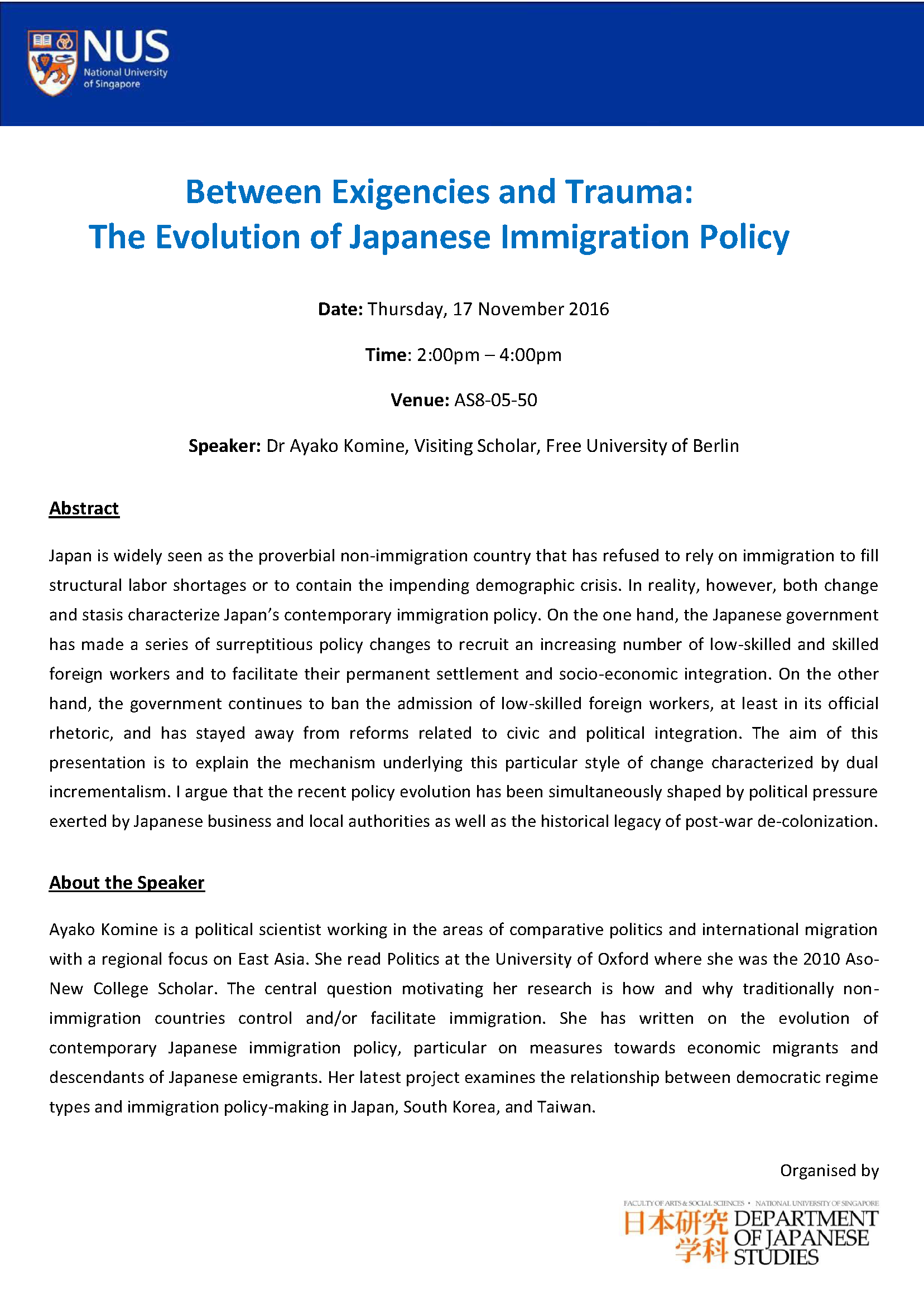Between Exigencies and Trauma: The Evolution of Japanese Immigration Policy
Abstract
Japan is widely seen as the proverbial non-immigration country that has refused to rely on immigration to fill structural labor shortages or to contain the impending demographic crisis. In reality, however, both change and stasis characterize Japan’s contemporary immigration policy. On the one hand, the Japanese government has made a series of surreptitious policy changes to recruit an increasing number of low-skilled and skilled foreign workers and to facilitate their permanent settlement and socio-economic integration. On the other hand, the government continues to ban the admission of low-skilled foreign workers, at least in its official rhetoric, and has stayed away from reforms related to civic and political integration. The aim of this presentation is to explain the mechanism underlying this particular style of change characterized by dual incrementalism. I argue that the recent policy evolution has been simultaneously shaped by political pressure exerted by Japanese business and local authorities as well as the historical legacy of post-war de-colonization.
About the Speaker
Ayako Komine is a political scientist working in the areas of comparative politics and international migration with a regional focus on East Asia. She read Politics at the University of Oxford where she was the 2010 AsoNew College Scholar. The central question motivating her research is how and why traditionally nonimmigration countries control and/or facilitate immigration. She has written on the evolution of contemporary Japanese immigration policy, particular on measures towards economic migrants and descendants of Japanese emigrants. Her latest project examines the relationship between democratic regime types and immigration policy-making in Japan, South Korea, and Taiwan.


